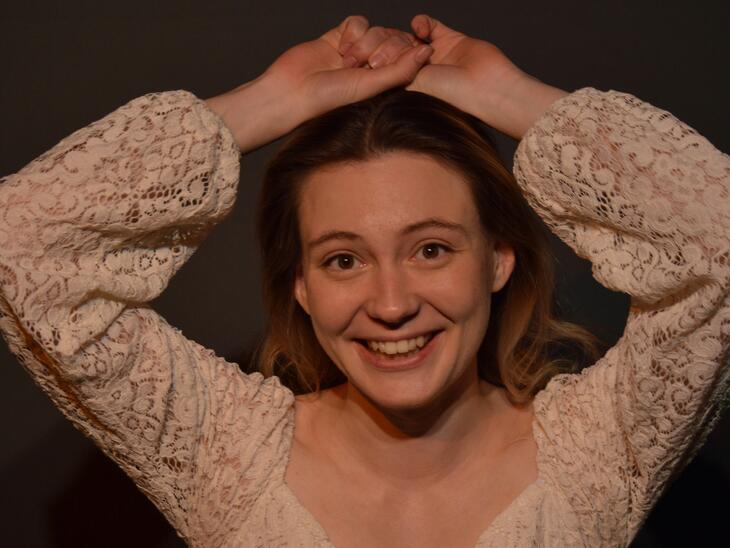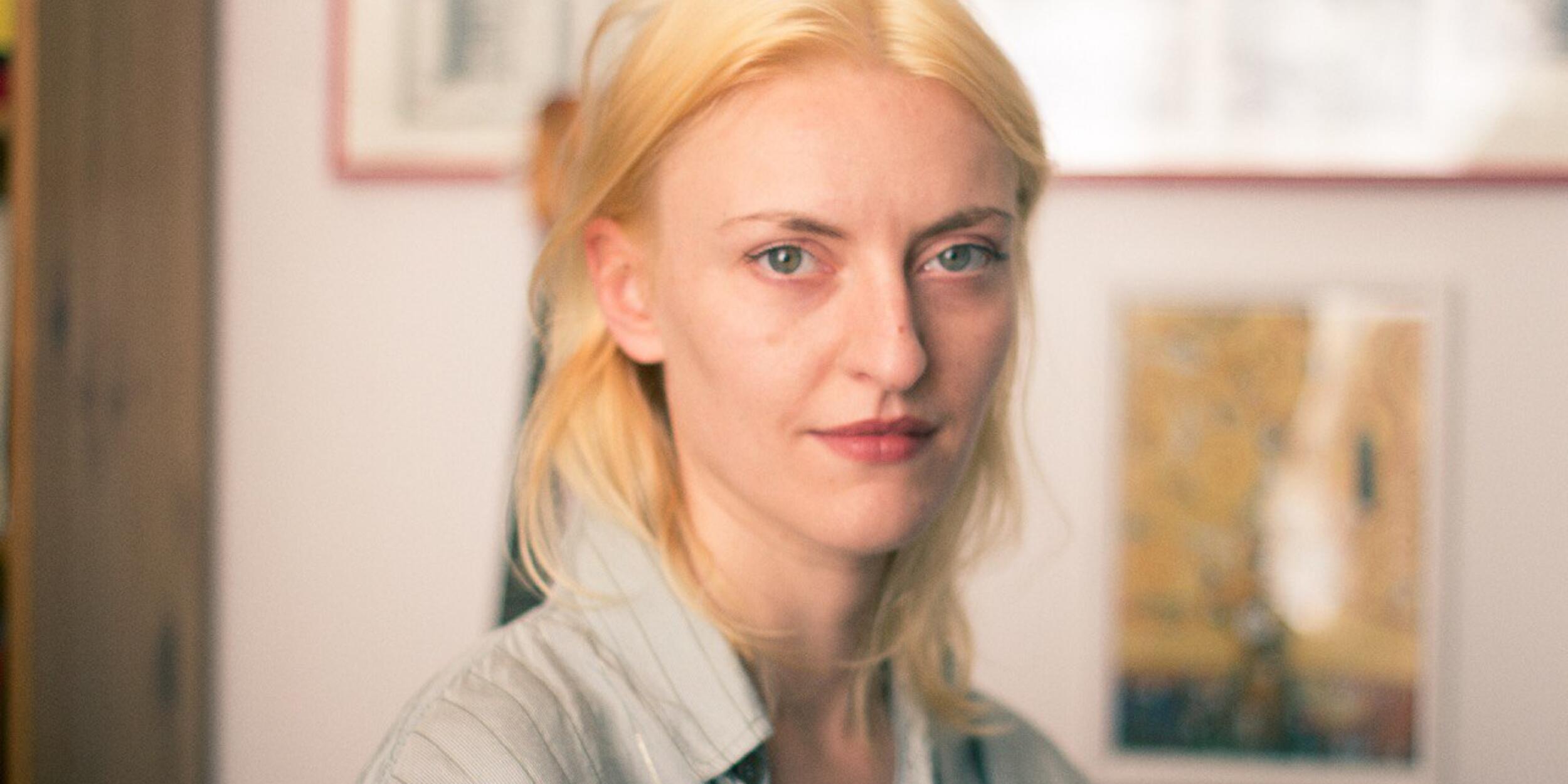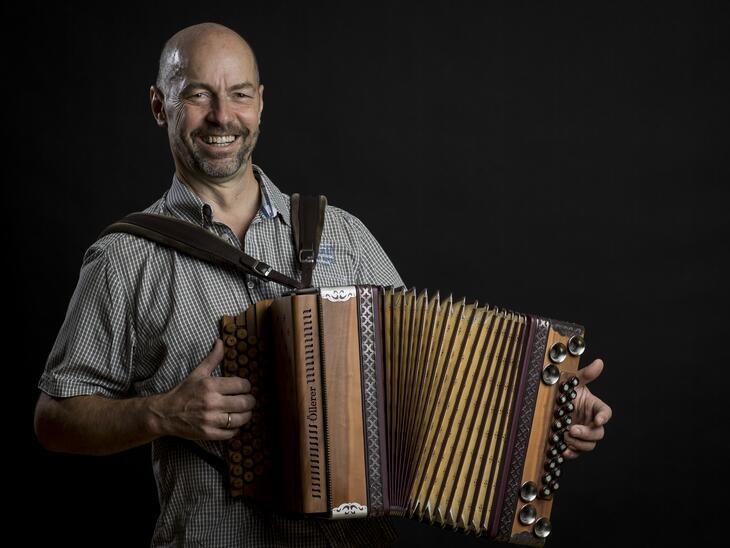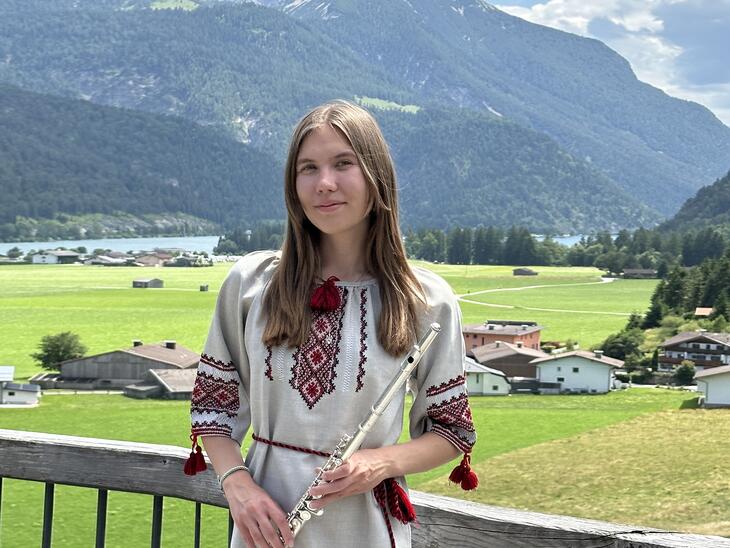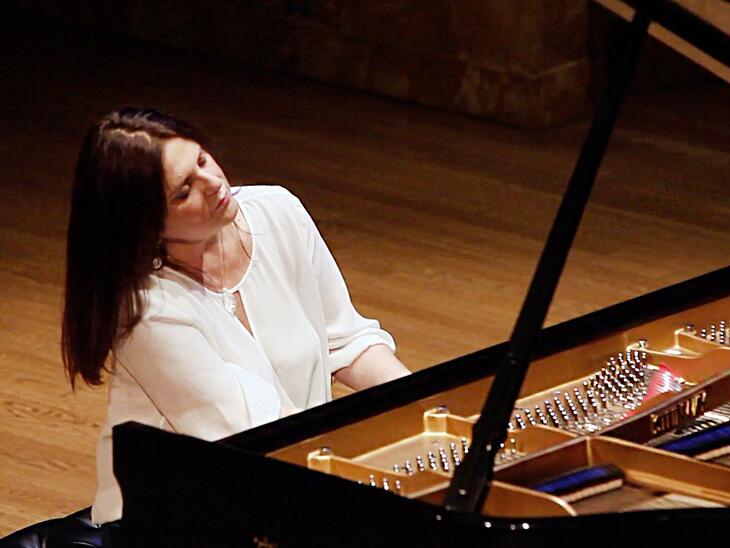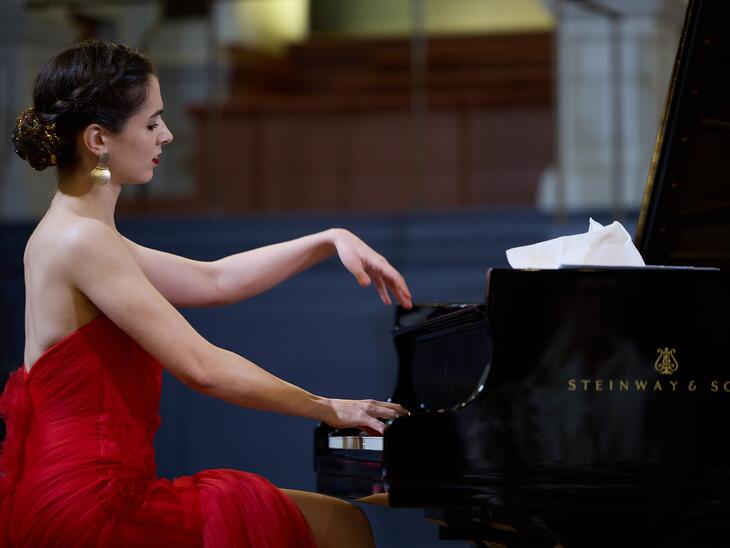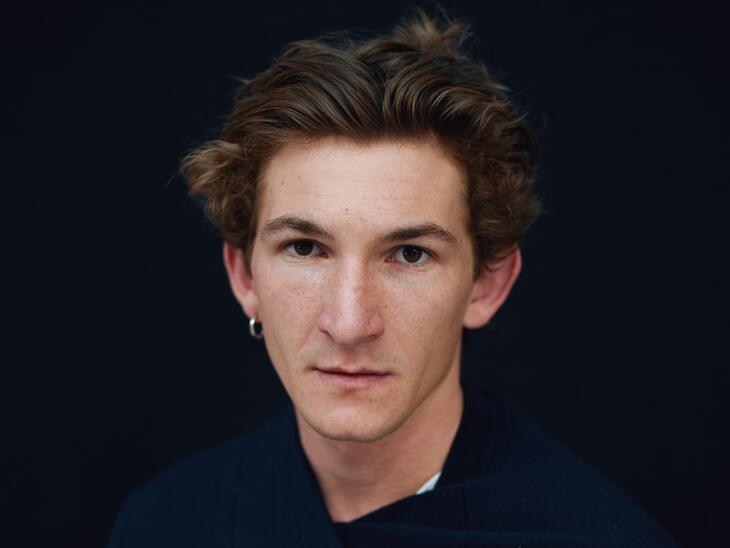Congratulations on the Max Ophüls Award! You are a set and costume designer and obviously feel very comfortable with directing as well?
Yes! I held the position of art director on the film. In film, I've always had a mix of duties as art director and set designer, but I've also been involved in production, and I've always taken on the position of assistant director and worked a lot with the director in terms of content. I'm friends with female filmmakers, so I've been passionate about what I do in the past. Without passion, working on an emotional level doesn't work; I approach projects emphatically. Then about five years ago I made my first two short films as a director, "The yellow Wallpaper" deals with the theme of loneliness and will soon be submitted to festivals. For the current film "Cracks in the Foundation", which deals with the "MeToo story", I was already part of the team when production started. I dealt with the content of the script and was in constant conversation with Gerald Sommerauer (director) and Isabella Kröger (screenwriter). Gerald and I have been in close contact for many years and have developed a common language for filmmaking, and since it is important to include the female perspective and experience in a "Me Too" theme, he asked me if we would do it together. I knew the actors, who we cast together with a lot of thought, and so it became my official directorial debut. Somehow that suits me (laughs).
What does this award mean to you and your colleague?
The award means a great opportunity to be seen and heard. To generate attention. Of the many new young directors, not all get this chance. We have now succeeded in taking this first step. The next step is to apply for grants and scholarships, to pitch, to find producers in order to be able to continue working. With the current film we will now travel to festivals for about a year and then of course hope that film distributors will contact us. This is not so easy due to corona, because in the last two years we were "stuck" with the films due to closed cinemas, but in spite of everything we hope for the attention. After the theaters, the film should also be seen on television.
This is a long process …
Yes, even short films can sometimes take an enormous amount of time. It's always individual. We shot the film "The yellow Wallpaper" in just three days with three people in the film team, but the post-production took over four years. That has different reasons, sometimes content needs its resting phases until you know what to do with it. It takes a year and a half to make a short film, from the script to the finished film. Before that, the script has to be written and then you work on the attention for the film.
You just did stage and costumes for a play at the E.T.A. Hoffmann Theater in Bamberg. Do you work in parallel for film and theater?
Yes, it's crazy sometimes, but it just turned out that way. It's kind of a balance and I don't really want to do without either of them. In theater, stage and costume, in film art direction, screenplay and direction. I just have to find a good rhythm.
What is the difference in the development of stage and production design?
In set design, you actively search for spaces, you do location scouting. In stage design, you develop a new space in an existing black space, which is limited. A scene picture can be anywhere. It encompasses many places, spaces and expanses. Above all, it's not limited to the interior, so you have to think differently. This is also a good balance.
Do you work primarily in planning or do you also like to lend a hand in the workshops during implementation?
It happens every now and then, and I also think it's nice and important not to forget how the haptic works. Craft is everything, you have to say that. It's very important, even at university. Nevertheless, I already felt at university - not always to the enthusiasm of my professors - that I needed to get out, that I was missing the movement. I wanted to meet people, work with people, communicate, travel and see many things. I needed the input. Many students appreciate working in the workshops. I think that it is very important to give students the opportunity to go out, because each*one works things out in an individual way. For me, the craft and the communicative go hand in hand. I also make performative videos and do a lot of the design myself. In Altusried I work for an open-air stage with 2500 seats. Lay people build and design, sew and do everything themselves, but I have to show them how to do it. I demonstrate, hold workshops and explain how things work.
Was your career path planned like this from the beginning?
No. But I have to say that before university I had already worked in the theater for four years. I was inside that practice and couldn't "sit quietly in school" anymore. It was not an easy path, there were enough challenges. But everyone has to decide that for themselves individually. The important thing is to listen to yourself - even if it sounds strange. You feel best yourself what you need. How to move forward. I would always recommend looking outside, discovering new things, putting out your "feelers".
How can you imagine the process of creating a stage set or the costumes for a production? What is the collaboration with the director like? How do you get started?
First you read a lot (laughs). Theoretically acquire the material. Think about what we are telling. What fates are we talking about? Mostly, in art we tell about humanity, nature, creation, everything that surrounds us on an emotional level. We want to reach the audience. Therefore, it is important not only to look at the content spatially and creatively, but to deal with the material emotionally, empathically, almost sensitively. In parallel, you need the research work as inspiration and, last but not least, walking. As much as you need the input from outside, the "creative rest" is also crucial. For me, walking is very essential to let things work on me. What many neglect is the rest period where the brain can process things without having to be immediately productive again. This is something we totally neglect in "neoliberal capitalism." Moments of "non-productivity" - that's where creativity comes from. In my view, a constantly running engine does not always create creativity. When you have finished your research, you go into the conversation with the team. That's one of the most important steps. What have they been thinking about? What's the approach and what's the shared vision? In theater, but also in film, the hierarchy is very strong. The director has the last word. That's also good. For me personally, however, the "holistic" is then missing. That's another reason why I now direct myself, to create a whole vision. When I work with another director, I enter completely into that vision. This is where empathy, sensitivity and being responsive to each other is very important. In this role, as an artist, you really have to take a step back. You serve the stage, the piece. The question is, what does the play and the actors need in order to tell a certain story? What must the space be able to do? On the one hand, that limits creativity, but on the other hand, it builds a structure in which you can tell a story. The next step is to create a design and discuss that with the theater on a technical and financial level. This is followed by quite a lot of organization (laughs). It's about questions like: When will what be rehearsed? When will what be produced? Until finally the rehearsals start. This process takes about six weeks and then it's off to the premiere. Whereby the rehearsals are usually divided into several blocks by Corona. If there does happen to be a lockdown, productions are stretched out and others are brought out of the holding pattern.
In the last two years, much of the art has been digital. What has been your personal experience with it?
One positive effect was that I had to travel less. Model presentations could also be done online, unlike construction rehearsals. I think it's better when the rehearsal blocks at the theater return to normal and we can rehearse for six weeks at a time again, so that we can stay with the content. After all, we carry our plays into our lives and deal with them very intensively.
Is the "gender issue" with hierarchies, pay, the proportion of women vs. men in your profession also a present one?
Unfortunately it is, yes. It continues to be a struggle. As a woman, I have to keep reminding people of this. As a young woman, you were regularly kept down or treated poorly. In some cases, there was also generosity toward the young. Today as a grown woman who has arrived in life and earns her own money, I have to function within the system and that's where I really notice that the system is always working against me. Prices are pushed down, things are made impossible, often it's quite banal things that are perhaps not meant badly at all. At the last festival, my co-director couldn't be there and I held a photo of him up to the camera with my cell phone so that we could both be pictured. However, a photo was initially used in which my colleague was clearly visible but I was lost in the background. Unfortunately, I had to point this out so that we were both visible, even though it is a totally feminist and very diverse great festival. This has to do with our learned seeing and thinking behavior, which we have been trained in the patriarchal system. It's quite noticeable that as a woman you always have to be more behind in order to be treated as an equal. Often it's about micro-injuries. I still feel this is a big and important issue to work on. We women still have a harder time getting into the big "star director" or "star stage designer*" positions. It's not that women are less capable. It seems as if the opinion prevails that the man is the "safe option" and that's only because we've been taught that way for decades.
What role does the topic of sustainability play in your profession?
It's absolutely my theme. I would say I was one of the first to start doing that. I guess it also has to do with my background. I was born under communism, in Kazakhstan, and then came to Germany with my parents to capitalism, to a completely different system. My family taught me to recycle things and to be creative with things you have. With that, I also went to the theater. In the beginning, that was very unusual for many. In the trades, everything was usually made from scratch, or purchased, with very little used from what was available. I took existing costumes from the fundus, cut them up and produced new ones. At the Staatstheater in Mainz, for example, they found that quite funny (laughs). I had to establish myself with it first. Basically, I get my inspiration first from the fundis. In Altusried, I made knight's armor out of old leather jackets. Currently, I'm creating rococo dresses out of throw tents that we got donated. This works wonderfully for hoop skirts. We also make headpieces out of lampshades that we cover with fabric - all copyrighted by Genia Leis, of course (laughs). That's something I'm totally into!
You are already in the middle of your artistic career. What was the path from university to theater like? What tips and tricks can you give young artists?
It's important not to be shaken and to pursue your dream, to stay awake, open and curious about the world. You also have to allow processes of suffering and find space for them, so that you can then move on again. The problem in our "social media world" is that we are afraid of suffering processes. The world that is suggested to us is so colorful, so cheerful, so wholesome. We therefore believe that we, too, need to be that permanently. In our film "Cracks in the Foundation" there is the young woman who almost naively, ambitiously pursues her dream and is so deeply shaken by an experience…- it's an important process. On the one hand it is terribly painful what she experiences, on the other hand it is a process of recognizing one's own limits. Whereby it must not happen in the way it does in the movie….
Other people, teachers can give you a lot, but these are "only" thoughts, experiences, assumptions, opinions,…nothing is set in stone. There is no rule for everyone. Everyone has their own possibilities within themselves. Listening and respecting is important, but these are suggestions, not maxims. The important thing is to look for a wide range of opinions, and from that to arrive at your own opinions. Personally, I collected images. I wanted to learn to see. To see what others have done in order to draw from it. H
ow does the "job market" for stage and costume designers work? Are jobs for stage and costume advertised per production? Is it possible to apply?
As a stage designer, I can't apply. You can employ an agency, more and more are doing that. My experience is that word of mouth is very important and access works through the director. I already appreciated the proximity to the directing and acting department during my studies at the Mozarteum. I was able to make very good contacts and still work with these people today. Networks are very important. You should start early in this industry to get to know as many people as possible. In film, things are a little different, there are already one or two job openings for costume design, for example.
What is the biggest illusion of aspiring stage and costume designers?
That you can work as a freelance artist.
What do you enjoy most about your job? What can be stressful?
The design work, the freedom to "be creative" is especially nice. In addition, there is the "family" that usually develops while working together. What is not so nice is all the traveling. At the beginning it's a lot of fun, but at some point it becomes exhausting. I often miss my home. Sometimes I have the feeling that the theaters overtax themselves. There is too much programming. Trades and people suffer from the productions. Of course, that also spills over to the artists. The working atmosphere is then no longer as good, less friendly. Often the work becomes just something you have to do, and that's poison for the art. You feel the pressure of having to deliver in the way people interact with each other.
When you think back to your student days, what do you remember most fondly?
I particularly like to think of my shared apartment in a large old building in Salzburg near the university. That was a new reality of life for me. In the course of my studies, I found out how I wanted to work. The most beautiful thing was probably the experience with the people I met in my shared apartment and at the university. That has been with me all my life. People and communication are insanely important to me. I am also very grateful to my department and the professors for allowing me a lot and giving me a lot of freedom to find my way.
